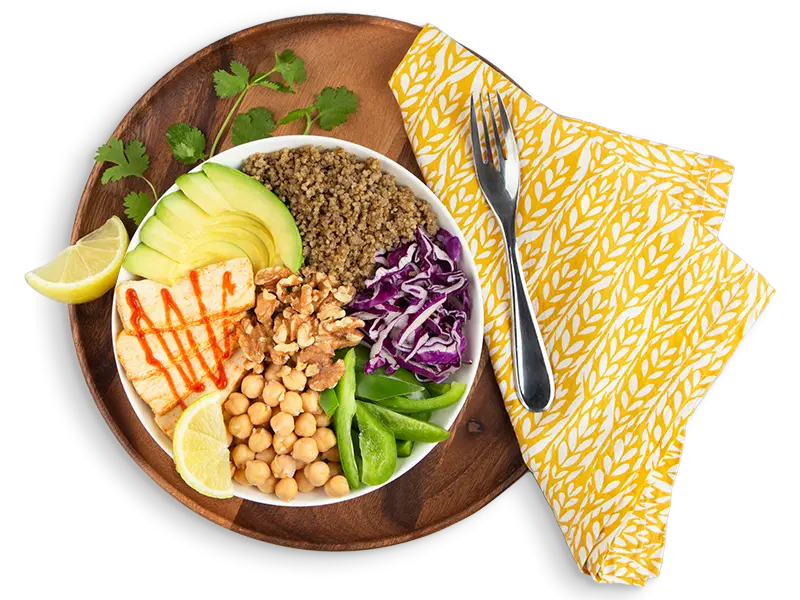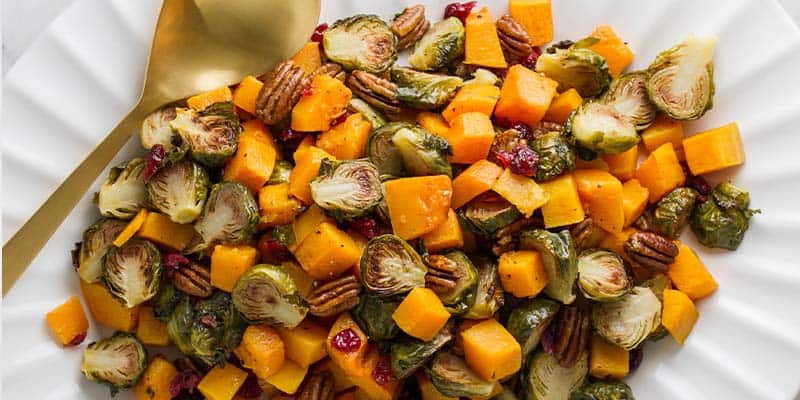
Discover Plant-Based Possibilities
Whether you’re a seasoned, plant-based pro or just beginning your journey, Sprouts has everything you need to fill your plate with plant-powered goodness. We’re proud to offer a variety of innovative products to excite your tastebuds like portabella mushroom jerky and coconut milk ice cream, plus all your vegan classics like marinated tofu or Sprouts Vegan Protein Powder. With thousands of vegetarian, vegan and plant-based items available to discover down each aisle, you’re bound to dig up something unique every time you shop.
Put More Plants on Your Plate™
Plant-based is more than a buzzword and has gained traction with many health-conscious individuals over the years. The popular movement is more than a diet and encourages folks to reach for more plants with fresh produce, whole grains, legumes and nuts to help fuel your day ahead! A plant-based diet packs a nutrient-dense punch and provides you with essential vitamins, minerals, loads of fiber and plant-based protein.
Good for you and the planet!
The idea behind a plant-based, vegan and vegetarian diet is to reduce or eliminate the number of animal products that are consumed in your day-to-day meals. When your plate is full of healthy, nutrient-dense foods, not only will it help you feel your best, but you can contribute to a healthier environment too. Studies have shown that a plant-based diet can contribute to lower greenhouse gas emissions and reduce land occupation while minimizing soil, air and water pollution.
How to get started

Don’t quit all your favorite foods cold tofurky!
Making a switch in your diet can be done in small, easy steps to ensure you stick to your new plan. Try these simple swaps in your everyday meals:
- Use marinated tofu or meat alternative in your meals.
- Swap your morning coffee creamer with a nut-based creamer.
- Try a plant-based yogurt or a protein bar as an afternoon snack.
Load up on produce
Filling your plate with a variety of fresh produce like fruit, vegetables and potatoes, will help keep you fuller, longer. With the increase in nutrient-dense, fibrous foods, you won’t want to reach for those highly palatable snacks that may deter you from your new plant-based or vegan diet. Pro tip: Vegetables like portabella mushrooms and eggplants have a similar texture to meat when cooked and can act as the main component of your dish.
Simplify your grocery hauls
Planning a complete diet overhaul in one swoop could be very overwhelming! Start to slowly replace the items in your pantry and refrigerator with each trip, not all at once. When you shop at Sprouts, we make it simple to navigate the aisles and easily spot which items are plant-based with convenient shelf tags. Plus, we’re always on the hunt for the newest, most innovative plant-based and vegan products, so you don’t have to be!
Diggin’ on a plant-based diet?
We’ve put together a convenient shopping list with some of our most nutritious faves to help make your next grocery trip a breeze!

 VIEW ALL
VIEW ALL






